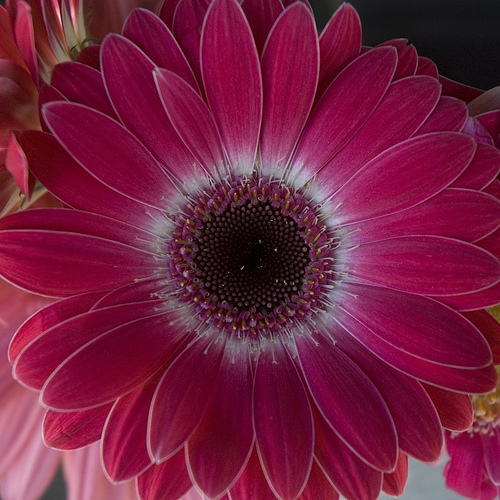I have no special talents. I am only passionately curious. – Albert Einstein
What does that mean?
In this quote, Einstein tries to explain his genius. He says that he has no special talents. While there are many theories on that portion of the quote, some of the leading explanations include how ‘folded’ his brain was, where some of the folds were (or were not), and how he used his brain (visual thinking vs verbal thinking). See Einstein’s Brain for more details.
However his brain might have been formed, and whatever talents it may have given him, the second part of the quote is rock solid. He was passionately curious. When coupled with a keen intellect and an unwillingness to let a problem sit unfinished, the result is practically unstoppable.
Why is passionate curiosity important?
While there is only one Einstein, and while he is one of the measuring sticks still used today for determining brilliance (as in “yeah, he’s bright, but he’s no Einstein”), we all can have our moments. By being curious, we learn. By being passionately curious, we continue to learn, and become even more curious.
We become even more curious because, like fractals, the closer you look, the more there is to see. Every answer raises a new question. We only stop being curious when we cease being passionate about the topic. While a passionate curiosity about everything will take up all you time, having a topic or two you stay curious about is a great way to keep your mind active and the learning centers of your brain open for business.
Where can I apply this in my life?
For me, I find science very interesting. My passionate curiosity includes some aspects of astrophysics (going back to my high school days), science (in general, physics in particular), and games (chess, and more recently Sudoku & KenKen).
With each of these topics, the more you learn, the more you understand how much is left to be figured out. Whether it’s star formation, star death (and how they are linked together), to game theory and it’s applications, there is always something new just around the corner.
What are the sort of things that peak your interest, that get you curious? For some it might be flowers and how they function across different species. For others, it might be flowers, but specifically the painting thereof and techniques related thereto. Still others might be curious about the differing photography techniques to use while shooting flowers.
And that was just flowers. This is an open field question, the answers could be anywhere. What’s important (to me, at least) is what gets you excited, what peaks your interest, what gets your curiosity going? Grab some paper and write a few of these things down.
For some (a rare handful of physicists), the theory Einstein couldn’t put together is their passion, the theory of everything. For the rest of us, our passions are likely in something a bit less theoretical, and probably a bit more attainable. I told you some of the things on my list, what’s on yours?
Read each of the things you listed out loud. Pause briefly after each one and think of all the aspects of that thing that you are curious to know more about. When you are done, select the one item that most interests you. You can always come back and add another at a later point in time.
What can you do to find out more about your ‘thing’? What do you already know, and how certain are you about it? If it’s a developing field, like quantum mechanics, you might need some time to catch up to the latest updates, and study the results of some of the most recent experiments.
The next thing to do is to determine into what specifically your curiosity wanted to delve. Write that down, perhaps two or three other aspects as well. Next to each, write down where you could get more information. Are there specific magazines or websites dedicated to keeping up with your field?
What else could be used as a resource? Are there classes at your local community college that might help? Is there an interest group in your area that meets to discuss and share questions and propose answers? These could be helpful for anything from photography to philosophy to painting and so many other topics.
Curiosity may have killed the cat, but (hopefully) you are brighter than that. What are you curious about? What questions are you going to ask? How will you keep your mind sharp? It’s a big world out there, find something that interests you and pursue it. And have a great time!
From: Twitter, @QuotesTimely
confirmed at : http://www.brainyquote.com/quotes/quotes/a/alberteins174001.html
Photo by frankjuarez
Happy Birthday to Albert Einstein, born 14 March, 1879








Pingback: A Reflection in Blogging | Wanderlust.